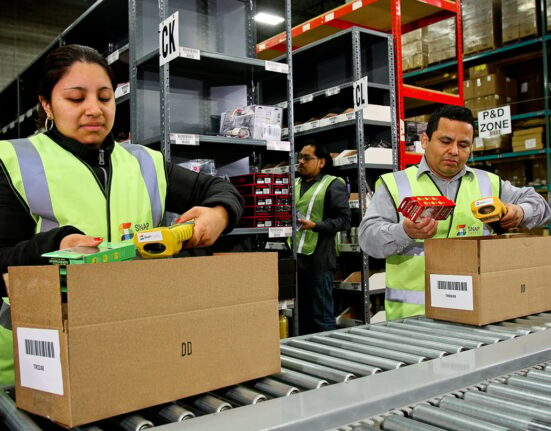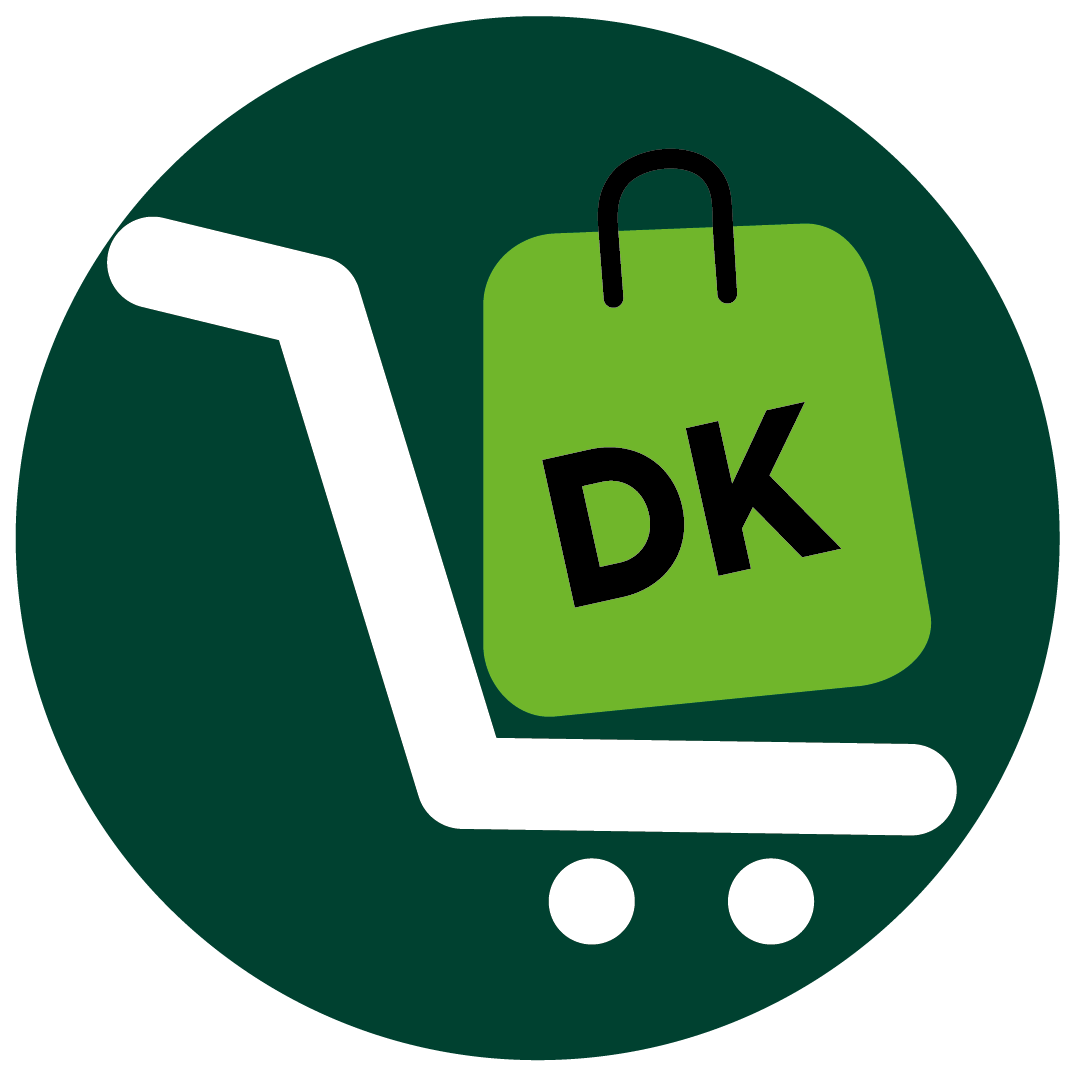Our Verdict

UPS eCommerce is way better than eFulfillment Service in offering robust solutions for e-commerce businesses. It does the job better because:
- It offers advanced technology like AI and predictive analytics for efficient operations.
- It provides global reach and expertise in international shipping.
- It supports high order volumes with automated multi-client fulfillment centers.
- It integrates seamlessly with various sales channels and platforms.
- It offers specialized packaging and retail compliance management to avoid costly fees.
- It provides business insights and analytics to optimize your supply chain.
- It ensures faster delivery with strategically placed warehouses.
- It offers scalable solutions to grow your business.
eFulfillment Service is perfect for small to medium-sized businesses because it doesn’t require a minimum order volume. This means even startups can use it without worrying about meeting high order numbers. Plus, its pricing is clear and straightforward, which helps in managing costs.
On the other hand, UPS eCommerce benefits from the vast logistics network of UPS. It’s excellent for handling large volumes and complex shipping needs, thanks to advanced technology like robots and predictive analytics. This makes it a strong choice if your business needs to ship a lot of products quickly and efficiently.
In the end, the best choice depends on your business needs.
So what is more important to your business?
Go for eFulfillment Service if you run a small to medium-sized business or are just starting. It requires no minimum order volume, so you won’t have to worry about meeting high order numbers. Plus, its pricing is clear and straightforward, which helps you manage your costs more effectively. Opt for UPS eCommerce if your business is growing and you need to handle a lot of orders quickly. Its vast logistics network and advanced technology manage large volumes and complex shipping needs efficiently. This means you can rely on it for fast and reliable delivery, even as your business scales up.
Why Choose eFulfillment Service

Who eFulfillment Service Is Best For
eFulfillment Service is perfect for:
- Small to Medium-Sized E-Commerce Retailers: Utilize eFulfillment Service to manage your inventory and fulfill orders without the need for long-term contracts.
- Startups: Take advantage of flexible, cost-effective fulfillment solutions tailored to your growing business needs.
- Crowdfunders: Use cross-docking services to ship new products to your backers immediately upon arrival at the warehouse.
- Businesses with Low Order Volumes: Benefit from no minimum order volume requirements and avoid extra fees for smaller order amounts.
- Companies Needing Simple Integration: Integrate your online store easily with eFulfillment Service’s web-based software.
- Retailers Handling Small Parcel Shipments: Optimize your fulfillment process for small parcels with efficient and reliable service.
- Businesses Seeking Personalized Support: Enjoy in-house customer support and personalized service to meet your specific needs.
- E-Tailers Looking for Pay-As-You-Go Options: Manage your costs effectively with pay-as-you-go pricing and no hidden fees.
Who eFulfillment Service Is Not Right For
eFulfillment Service is not the right choice for:
- Large Companies: Avoid eFulfillment Service if your business requires multiple warehouses for efficient distribution.
- International Sellers: Do not use eFulfillment Service if your primary market is outside the United States.
- Businesses with High Order Volumes: Refrain from choosing eFulfillment Service if you need to process a large number of orders daily.
- Companies Requiring Extensive Customization: Look elsewhere if your business needs highly customized fulfillment solutions.
- Businesses Needing Fast Turnaround Times: Avoid this service if you require expedited shipping and fast order processing.
- Companies with Irregular Shipping Needs: Do not opt for eFulfillment Service if your shipping volumes fluctuate significantly.
- Businesses Prioritizing Cost Over Service: Choose a different provider if your primary concern is minimizing shipping costs.
- Retailers Requiring Advanced Technology: Avoid eFulfillment Service if you need cutting-edge technology and automation for your fulfillment processes.
Why Choose UPS eCommerce

Who UPS eCommerce Is Best For
UPS eCommerce is best for:
- Small to Medium-Sized Businesses (SMBs): Leverage UPS’s discounted rates and seamless integration with e-commerce platforms to streamline your shipping processes.
- Large Retail Brands: Utilize UPS’s scalable and technology-driven fulfillment solutions to manage high order volumes efficiently.
- Online Marketplaces: Rely on UPS’s extensive logistics network to ensure reliable and timely deliveries for your customers on platforms like Amazon, eBay, and Etsy.
- Direct-to-Consumer (D2C) Brands: Optimize your inventory management and order fulfillment with UPS’s specialized services tailored for D2C brands.
- Businesses with High Order Volumes: Take advantage of UPS’s automated multi-client fulfillment centers to handle large numbers of orders daily.
- International Sellers: Expand your market reach with UPS’s expertise in global shipping and international logistics.
- Businesses Needing Specialized Packaging: Avoid costly fees and chargebacks by using UPS’s retail compliance and specialized packaging services.
- Companies Seeking Business Insights: Enhance your supply chain efficiency with UPS’s business intelligence and analytics tools.
Who UPS eCommerce Is Not Right For
UPS eCommerce is not right for:
- Businesses with Very Low Shipping Volumes: Avoid UPS eCommerce if your shipping needs are minimal, as the service is specifically for higher volumes.
- Companies Needing Extremely Low-Cost Shipping Options: Do not choose UPS if your primary concern is minimizing shipping costs, as there are cheaper alternatives.
- Businesses Primarily Shipping Small, Lightweight Packages: Refrain from using UPS if your shipments are mostly small and light, as other carriers may offer better rates for these.
- Companies Requiring Extensive Same-Day Delivery Services: Look elsewhere if you need comprehensive same-day delivery options, as UPS focuses more on next-day and standard shipping.
- Businesses with Highly Irregular Shipping Needs: Avoid UPS if your shipping volumes fluctuate significantly, as the service is designed for more consistent shipping patterns.
- Companies Needing Extensive Rural Delivery Services: Do not opt for UPS if your deliveries are primarily to rural areas, as other carriers might have better coverage.
- Businesses Prioritizing Local Over International Shipping: Choose a different provider if your focus is mainly on local deliveries, as UPS excels in international logistics.
- Companies Requiring Extensive Warehousing and Inventory Management: Avoid UPS if you need comprehensive warehousing and inventory management solutions, as other providers might offer more specialized services.
eFulfillment Service vs. UPS eCommerce: Main Differences
Ideal For
eFulfillment Service is ideal for you if you’re running a small to medium-sized business or just starting out. It offers flexibility with no minimum order requirements, making it accessible even for startups. It’s transparent pricing helps you manage costs effectively without worrying about hidden fees. Additionally, eFulfillment Service provides excellent customer support and integrates seamlessly with multiple eCommerce platforms, ensuring a smooth and efficient fulfillment process. This makes it a great choice for businesses looking to scale without the complexities of managing logistics in-house.
UPS eCommerce is ideal for you if your business needs to handle a high volume of orders efficiently and requires advanced logistics solutions. With UPS’s extensive logistics network, you can ensure rapid and reliable delivery. Its use of advanced technology, such as automation and AI, helps optimize fulfillment processes, making it easier to manage complex logistics. Additionally, UPS eCommerce offers comprehensive services, including branded packaging and returns management, which can enhance your customer experience and support your business growth.
Plans and Pricing
eFulfillment Service offers a flexible pricing model tailored to the needs of small and medium-sized businesses. It does not charge setup or integration fees and provides discounted shipping options. Its pricing includes a comprehensive support fee for software and customer service, free stock packaging, and stable handling fees with volume discounts. It charges inventory fees based on the space you use, updates weekly, and uses a Smart Rate Selector to ensure the best shipping rates from carriers like FedEx, DHL, and USPS.
UPS eCommerce provides competitive rates for small businesses, including reduced rates, fewer fees, and simplified contracts. Its Digital Access Program offers free plug-ins for popular e-commerce platforms like WooCommerce and Magento, allowing seamless integration of UPS services. Businesses can access discounts of up to 55% off daily rates, real-time tracking, and accurate delivery times. UPS also includes value-added services like label printing and control over shipping rates, which it displays to customers.
Accounting Integration
eFulfillment Service integrates seamlessly with popular accounting software like QuickBooks, providing real-time updates and automating order retrieval and tracking information. It supports multiple eCommerce platforms, making it ideal for small to medium-sized businesses. UPS eCommerce, on the other hand, connects with a wide range of accounting, ERP, and eCommerce systems, including QuickBooks and Dynamics GP.
Standout Features
eFulfillment Service stands out for its flexibility and accessibility, especially for small to medium-sized businesses. It offers no minimum order requirements and transparent pricing with no hidden fees, making it cost-effective. The service provides real-time inventory tracking and powerful analytics to help manage stock levels efficiently. Additionally, eFulfillment Service integrates seamlessly with multiple eCommerce platforms and offers excellent customer support, ensuring a smooth and efficient fulfillment process.
UPS eCommerce stands out for its extensive logistics network, which ensures rapid and reliable delivery. It leverages advanced technology like automation, AI, and predictive analytics to optimize fulfillment processes. The service is highly scalable, and capable of handling high volumes and complex logistics efficiently. Additionally, UPS eCommerce offers comprehensive services, including branded packaging and returns management, and supports international shipping with competitive rates. The UPS Digital Access Program further enhances its offerings by providing discounted shipping rates and seamless integration with popular eCommerce platforms.
eFulfillment Service vs. UPS eCommerce: Standout Features
eFulfillment Service

eFulfillment Service stands out because it:
- Provides real-time inventory tracking and updates
- Offers transparent pricing with no hidden fees
- Requires no minimum order volume
- Integrates seamlessly with multiple eCommerce platforms
- Delivers excellent customer support
- Uses a flexible pay-as-you-go model.
UPS eCommerce

UPS eCommerce is outstanding because it:
- Utilizes an extensive logistics network for rapid delivery.
- Leverages advanced technology like automation and AI.
- Handles high volumes and complex logistics efficiently.
- Offers comprehensive services, including branded packaging and returns management.
- Supports international shipping with competitive rates.
- Provides discounted shipping rates through the UPS Digital Access Program.
Pros and Cons of eFulfillment Service

- Pros
- Eliminates minimum order requirements, making it ideal for small to medium-sized businesses.
- Offers transparent pricing with no hidden fees.
- Provides real-time inventory tracking and updates.
- Integrates seamlessly with multiple eCommerce platforms.
- Delivers excellent customer support.
- Uses a flexible pay-as-you-go model.
- Cons
- Handles high order volumes less efficiently compared to larger fulfillment services.
- Lacks extensive international shipping options.
- Offers fewer customized packaging solutions.
- Charges higher fees during peak times.
- Requires multiple providers for certain specialized services.
Pros and Cons of UPS eCommerce

- Pros
- Utilizes an extensive logistics network for rapid delivery.
- Leverages advanced technology like automation and AI.
- Handles high volumes and complex logistics efficiently.
- Offers comprehensive services, including branded packaging and returns management.
- Supports international shipping with competitive rates.
- Provides discounted shipping rates through the UPS Digital Access Program.
- Cons
- Charges occasional surcharges, especially for additional handling or address correction.
- Has higher shipping costs for small, lightweight packages.
- May not be the most cost-effective solution for very small businesses.
- Lacks refunds for undelivered packages.
- Requires additional fees for certain services, such as residential delivery or signature confirmation.
eFulfillment Service vs. UPS eCommerce: Customer Reviews
eFulfillment Service has accolades for its flexibility and cost-effectiveness, especially for small to medium-sized businesses. On Trustpilot, it has a rating of 3.7 out of 5 stars, and on Birdeye, it scores 4.2 out of 5 stars based on 101 reviews. PCMag praises it for excellent pricing and no minimum order volume requirements. However, it has mixed reviews on Warehousing and Fulfillment, with ratings of 4.2 out of 5 stars on Google Reviews, 2.5 out of 4 stars on G.com, and 2 out of 5 stars on Webretailer.
UPS eCommerce, on the other hand, has more mixed reviews. On ConsumerAffairs, it has a low rating of 2 out of 5 stars based on 6,724 reviews, and on Trustpilot, it also scores 2 out of 5 stars based on 35,601 reviews
eFulfillment Service and UPS eCommerce Competitors
- FedEx Fulfillment: FedEx Fulfillment offers an end-to-end solution, from picking and packing to shipping. It integrates with various sales channels and provides full visibility from packing to delivery. FedEx’s extensive global network ensures reliable and efficient service, making it a strong competitor for both eFulfillment Service and UPS eCommerce
- DHL: DHL is a global leader in logistics and courier services, offering parcel delivery, international courier, and express mail services in over 220 countries. Known for its robust global forwarding capabilities, DHL competes directly with UPS in e-commerce logistics and supply chain management.
- Fulfillment by Amazon (FBA): FBA is ideal for Amazon sellers but also supports other marketplaces. It leverages Amazon’s vast fulfillment centers worldwide, offering efficient returns management and fast shipping. This makes FBA a formidable competitor for eFulfillment Service, especially for businesses heavily reliant on Amazon
- ShipBob: ShipBob provides technology-driven fulfillment solutions, focusing on fast and cost-effective shipping. It integrates with major eCommerce platforms and offers real-time inventory tracking. ShipBob’s emphasis on technology and efficiency makes it a strong competitor for both eFulfillment Service and UPS eCommerce.
- Rakuten Super Logistics: Rakuten Super Logistics offers comprehensive fulfillment services, including order processing, inventory management, and returns handling. It integrates with various eCommerce platforms and provides fast shipping options. Rakuten’s focus on customer satisfaction and efficient logistics makes it a notable competitor.
>>> GET SMARTER : Which eCommerce Platform Is Best for Dropshipping
Pro Tips
Here are some pro tips to help you make an informed decision:
- Assess Your Order Volume: If your business handles a high volume of orders, UPS eCommerce’s extensive logistics network and advanced technology might be more suitable. For smaller volumes, eFulfillment Service’s no minimum order requirement is ideal.
- Consider Your Budget: eFulfillment Service offers transparent pricing with no hidden fees, which is great for managing costs. UPS eCommerce provides competitive rates and discounts, but be mindful of potential surcharges.
- Evaluate Your Growth Plans: If you plan to scale rapidly, UPS eCommerce’s ability to handle complex logistics and high volumes efficiently can support your growth. eFulfillment Service is excellent for gradual scaling with its flexible pay-as-you-go model.
- Check Integration Needs: Ensure the service you choose integrates seamlessly with your existing eCommerce platforms and accounting software. Both services offer robust integration options but verify compatibility with your specific systems.
- Customer Support and Service Quality: Consider the level of customer support you need. eFulfillment Service is reputable for its excellent customer service, while UPS eCommerce offers comprehensive services, including branded packaging and returns management.
Recap
eFulfillment Service and UPS eCommerce both offer robust fulfillment solutions. eFulfillment Service offers flexible, cost-effective solutions with no setup fees, discounted shipping, and comprehensive support, ideal for small to medium-sized businesses. UPS eCommerce provides integrated shipping and fulfillment with significant discounts, real-time tracking, and seamless integration with popular e-commerce platforms, focusing on speed and reliability.
Choose eFulfillment Service if you’re a small to medium-sized business looking for a flexible, cost-effective fulfillment solution. It offers no setup or integration fees, discounted shipping options, and comprehensive support, including free stock packaging and volume discounts. Its Smart Rate Selector ensures you get the best shipping rates from carriers like FedEx, DHL, and USPS.
Go for UPS eCommerce on the other hand, if you need a more integrated shipping and fulfillment service plus speed and reliability. Its Digital Access Program offers seamless integration with popular e-commerce platforms like WooCommerce and Magento, significant discounts, real-time tracking, and value-added services like label printing and control over shipping rates displayed to customers.
Consider your specific needs—if flexibility and cost savings are your priorities, go with eFulfillment Service. If you need comprehensive, integrated solutions with a focus on speed and reliability, UPS eCommerce might be the way to go.














